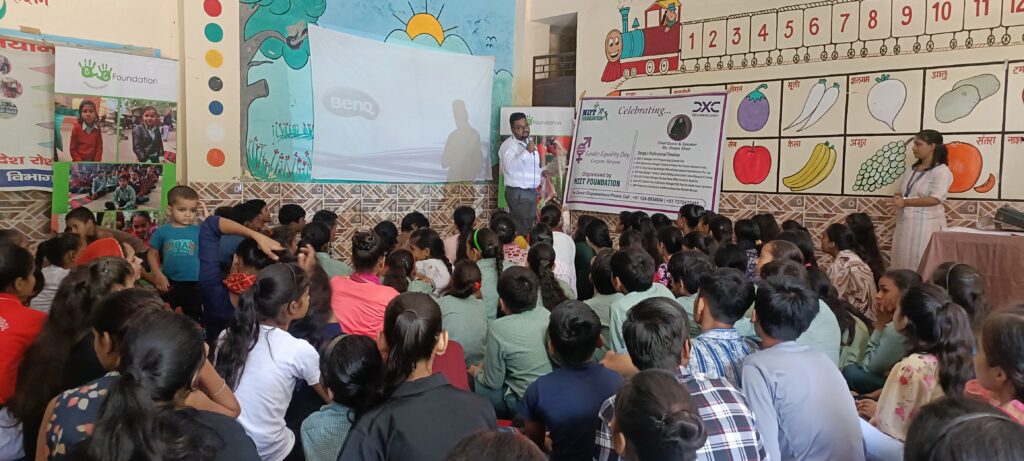Skill development plays a crucial role in shaping the employment prospects of young individuals. In today’s competitive job market, possessing the right skills is essential for securing meaningful employment opportunities. The rapidly evolving nature of industries and technological advancements have made it imperative for young job seekers to continuously upgrade their skills to stay relevant. This article will delve into the significance of skill development for youth employment and explore various aspects related to this topic.

Key Takeaways
- Skill development is crucial for improving youth employment prospects.
- Soft skills are just as important as technical skills in youth employment.
- Technology plays a significant role in skill development for youth employment.
- Collaboration between government, private sector, and NGOs is necessary for successful skill development programs.
- Best practices in skill development for youth employment include hands-on training and mentorship programs.
The Current State of Youth Employment: Challenges and Opportunities
Youth unemployment rates continue to be a pressing issue in many countries around the world. According to recent statistics, the global youth unemployment rate stands at 13.6%, which is three times higher than the overall unemployment rate. Young job seekers often face numerous challenges, including lack of experience, limited access to job opportunities, and competition from more experienced candidates.
However, amidst these challenges, there are also opportunities for youth employment in emerging industries. As technology continues to advance, new sectors such as renewable energy, artificial intelligence, and digital marketing are witnessing significant growth. These industries offer promising career prospects for young individuals who possess the necessary skills and adaptability to thrive in these dynamic environments.
The Role of Skill Development in Addressing Youth Unemployment
Skill development plays a pivotal role in addressing the issue of youth unemployment. By equipping young individuals with relevant skills, they become better prepared to meet the demands of the job market. Skill development programs bridge the gap between youth job seekers and employers by providing training that aligns with industry requirements.
Matching skills with industry demands is crucial for reducing unemployment rates among young individuals. By identifying the skills that are in high demand, skill development programs can focus on providing training in those areas. This ensures that young job seekers possess the necessary competencies that employers are seeking, increasing their chances of securing employment.
The Benefits of Skill Development for Youth Employment Prospects
| Benefits of Skill Development for Youth Employment Prospects |
|---|
| 1. Increased employability |
| 2. Higher earning potential |
| 3. Improved job satisfaction |
| 4. Better career advancement opportunities |
| 5. Enhanced problem-solving and critical thinking skills |
| 6. Increased confidence and self-esteem |
| 7. Improved communication and teamwork skills |
| 8. A better understanding of industry trends and demands |
| 9. Increased adaptability and flexibility in the workplace |
| 10. Improved overall quality of life |
Skill development offers a multitude of benefits for youth employment prospects. Firstly, it improves employability and job readiness. Young individuals who have undergone skill development programs are equipped with the necessary knowledge and abilities to perform well in their chosen fields. This enhances their chances of being hired by employers who value skilled workers.
Furthermore, skill development programs contribute to increased earning potential and career advancement opportunities. By acquiring specialized skills, young individuals become more valuable assets to organizations, leading to higher salaries and better career prospects. Additionally, continuous skill development allows individuals to stay updated with industry trends and advancements, ensuring their long-term employability.
The Importance of Soft Skills in Youth Employment
While technical skills are essential, soft skills also play a vital role in youth employment. Soft skills refer to personal attributes that enable individuals to effectively interact and collaborate with others in the workplace. These skills are highly valued by employers as they contribute to a positive work environment and enhance productivity.
Examples of soft skills that employers look for in job candidates include communication skills, teamwork, problem-solving abilities, adaptability, and leadership qualities. These skills are transferable across various industries and are crucial for career success. Skill development programs should not only focus on technical competencies but also emphasize the development of soft skills to ensure holistic growth among young individuals.
The Role of Technology in Skill Development for Youth Employment
Technology has revolutionized the job market, creating both challenges and opportunities for youth employment. As automation and artificial intelligence continue to advance, certain jobs may become obsolete while new roles emerge. Therefore, young individuals need to develop technological skills that are in demand.
Technology-based skill development programs have gained prominence in recent years. These programs provide training in areas such as coding, data analysis, digital marketing, and cybersecurity. By equipping young individuals with these skills, they become better prepared to navigate the digital landscape and secure employment opportunities in technology-driven industries.
The Role of Education and Training in Skill Development for Youth Employment
Education and training play a crucial role in developing job-specific skills among young individuals. Traditional educational institutions, such as schools and universities, provide a foundation of knowledge that can be further enhanced through specialized training programs.
Vocational training programs and apprenticeships are particularly valuable in skill development for youth employment. These programs offer hands-on experience and practical training in specific industries, allowing young individuals to acquire industry-specific skills. By combining theoretical knowledge with practical application, vocational training programs bridge the gap between education and employment, increasing the employability of young individuals.
The Role of Private Sector in Skill Development for Youth Employment
The private sector has a significant role to play in skill development for youth employment. Employers can contribute by partnering with educational institutions and skill development organizations to design programs that align with industry requirements. By actively participating in the development of these programs, the private sector ensures that young individuals are equipped with the skills needed to excel in their respective fields.
Furthermore, private sector initiatives such as internships, mentorship programs, and on-the-job training provide valuable opportunities for young individuals to gain practical experience and develop their skills. These initiatives not only benefit the youth but also enable organizations to identify and nurture talent from an early stage.
The Role of Government in Skill Development for Youth Employment
Governments play a crucial role in skill development for youth employment through the implementation of policies and programs. Governments can allocate resources towards funding skill development initiatives, ensuring that young individuals have access to quality training opportunities.
Examples of government-funded skill development programs include scholarships, grants, and subsidies for vocational training. These initiatives aim to reduce financial barriers and enable young individuals from all socio-economic backgrounds to access skill development opportunities. Additionally, governments can collaborate with the private sector to create apprenticeship programs that provide practical training and employment opportunities for young individuals.

The Role of NGOs in Skill Development for Youth Employment
Non-governmental organizations (NGOs) also play a significant role in supporting youth skill development. NGOs often focus on marginalized communities and provide training programs that empower young individuals with the necessary skills to secure employment.
NGO-led skill development programs are designed to address specific needs and challenges faced by youth in different regions. These programs not only provide technical training but also emphasize the development of soft skills and entrepreneurship abilities. By working closely with local communities, NGOs can create sustainable solutions that uplift youth employment prospects.
Best Practices in Skill Development for Youth Employment
Effective skill development strategies for youth employment involve a combination of theoretical knowledge, practical training, and mentorship. Programs should be designed in collaboration with industry experts to ensure that the skills being taught are relevant and in demand.
Furthermore, incorporating experiential learning opportunities, such as internships and apprenticeships, allows young individuals to apply their skills in real-world settings. This hands-on experience enhances their employability and provides valuable networking opportunities.
Additionally, ongoing evaluation and feedback mechanisms should be implemented to assess the effectiveness of skill development programs. This ensures that programs can be continuously improved and adapted to meet the evolving needs of the job market.
Case Studies: Successful Skill Development Programs for Youth Employment
Several successful skill development programs have made a significant impact on youth employment prospects. One such example is the “Skills for Employment Program” implemented by a non-profit organization in partnership with local businesses in a developing country. This program provided vocational training in sectors such as hospitality, construction, and information technology, resulting in increased employment rates among participating youth.
Another successful case study is the “Tech Academy” initiative launched by a technology company. This program offered free coding boot camps and mentorship opportunities to young individuals interested in pursuing careers in software development. Many participants went on to secure well-paying jobs in the technology industry, highlighting the effectiveness of this skill development program.
Challenges and Limitations of Skill Development for Youth Employment
While skill development programs have numerous benefits, some challenges and limitations need to be addressed. One major challenge is the accessibility of these programs, particularly for marginalized communities and individuals from low-income backgrounds. Limited resources and lack of awareness often hinder young individuals from accessing skill development opportunities.
Furthermore, the rapid pace of technological advancements poses a challenge in keeping skill development programs up to date. The skills that are in demand today may become obsolete in the future, requiring continuous adaptation and evolution of skill development initiatives.
To address these challenges, stakeholders must collaborate and invest in comprehensive solutions. Governments, private sector organizations, and NGOs must work together to ensure that skill development programs are accessible, relevant, and sustainable.
The Power of Skill Development in Transforming Youth Employment Prospects
Skill development plays a pivotal role in transforming youth employment prospects. By equipping young individuals with the right skills, they become better prepared to meet the demands of the job market and secure meaningful employment opportunities. Skill development programs should not only focus on technical competencies but also emphasize the development of soft skills that are highly valued by employers.
The private sector, government, and NGOs all have important roles to play in supporting youth skill development. Collaboration between these stakeholders is essential to create comprehensive solutions that address the challenges faced by young job seekers.
Investing in youth skill development is not only beneficial for individuals but also for society as a whole. By empowering young individuals with the necessary skills, we can create a workforce that is adaptable, innovative, and capable of driving economic growth. It is imperative for all stakeholders to recognize the importance of skill development and take action to invest in youth employment programs. Only through these collective efforts can we ensure a brighter future for our youth and a thriving job market.


